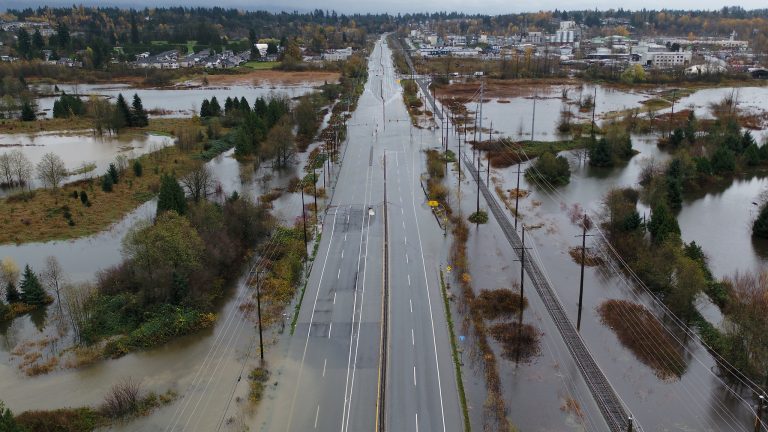Published on November 22, 2021

A few short months after the end of a devastating wildfire season, many B.C. communities are cleaning up after disastrous floods that have swept away highways, submerged homes, triggered deadly landslides, stranded hundreds of people and forced thousands more to evacuate.
While climate change and (bad) luck each had some role to play, previous wildfires are known to boost the risk of disastrous flooding following a heavy rain or snowmelt.
Bob Freitag is director of the Institute for Hazards Mitigation, Planning and Research at the University of Washington. The neighbouring U.S. state is typically hit with the same weather as parts of B.C. and has also experienced record flooding.
Freitag said following a fire, since the soil no longer absorbs water, “the water runs down very, very quickly [and] starts to scour out things. And so you have a situation… where you have lots of water come down and also lots of sediment coming down with it.”
Landslides that include lots of sediment, rocks and trees are called debris flows, and they’re common after fires.
Matthias Jakob, a geoscientist at BGC Engineering, a consulting firm that works on landslide preparedness, told CBC’s What On Earth radio show that while it usually takes an extreme rainfall to trigger them, an ordinary storm may be enough to do so on a wildfire-affected slope.
“In other words, [debris flows] become almost certain when these wildfires reach these areas,” he said. “And that’s exactly what we have seen with these recent rainstorm events.”
Fire-induced rock cracking can also increase rockfalls, as can the loss of stumps, logs and roots holding loose rock in place.
Not only does all that increase the risk of landslides, but when it reaches the bottom, that sediment and debris fills up rivers, leaving less room for water, potentially damming the river altogether, and boosting the flood risk. Meanwhile, rocks and debris carried by the river erode and damage the banks, along with nearby property, including homes or docks that might have been raised to protect from flooding, Freitag said.
Continue reading at CBC News.
Originally written by Emily Chung for CBC News.